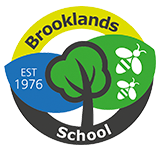Assessment and Progress
Assessment across Brooklands
We use a pupil centred approach to assessment, pupils Educational and Health Care Plan (EHCP) shapes the individual assessment measures used to monitor progress. Every pupil’s progress in the Brooklands is measured and recorded on their own learning journey and personal learning goals. The learning journeys vary slightly according to which curriculum they access but do work on the same principal of increasing points with increasing progress. The learning journeys are updated regularly and pupil point’s progress is passed on to senior leadership during assessment week once a term. Pupils are assessed against each academic learning journey outcome as to whether they are emerging, developing or secure. For the personal marching on Journeys pupils are assessed against an independence scale as to whether they are or need, physical help, modelling help, verbal prompts, gestural prompts, Independent or Independent secure. The academic learning journeys can be cross referenced to former P levels and age related expectations used for the new National Curriculum Pupil’s progress towards their end of key stage targets. Progress is monitored by the leadership team and placed in to 4 categories rapid, good, expected and not met. This is based on and compared with our pupil’s data and progress of similar schools. Progress meetings take place twice a year with teachers and the leadership team to discuss individual pupil progress, any pupils highlighted as not on track may then be targeted for additional support.
Personal learning goals incorporate the pupils end of key stage ECHP outcomes and their individual educational plan (IEP) which are set, updated and agreed by staff and parents in termly meetings.
Every pupil has a file on Evidence for Learning where evidence of progress is logged on their learning journey. Evidence of progress is moderated by teaching staff at least once per half term then cross moderated by the leadership team and with other special schools 6 times a year. Evidence on Evidence for Learning may be a video, a photo or a photo of a piece of work.
The large majority of our pupils do not take the end of key stage tests that are part of the National Curriculum. From the age of 14, relevant pupils embark on accreditations and qualifications in a wide range of areas.
 Ofsted Report
Ofsted Report Parent View
Parent View Term Dates
Term Dates 
